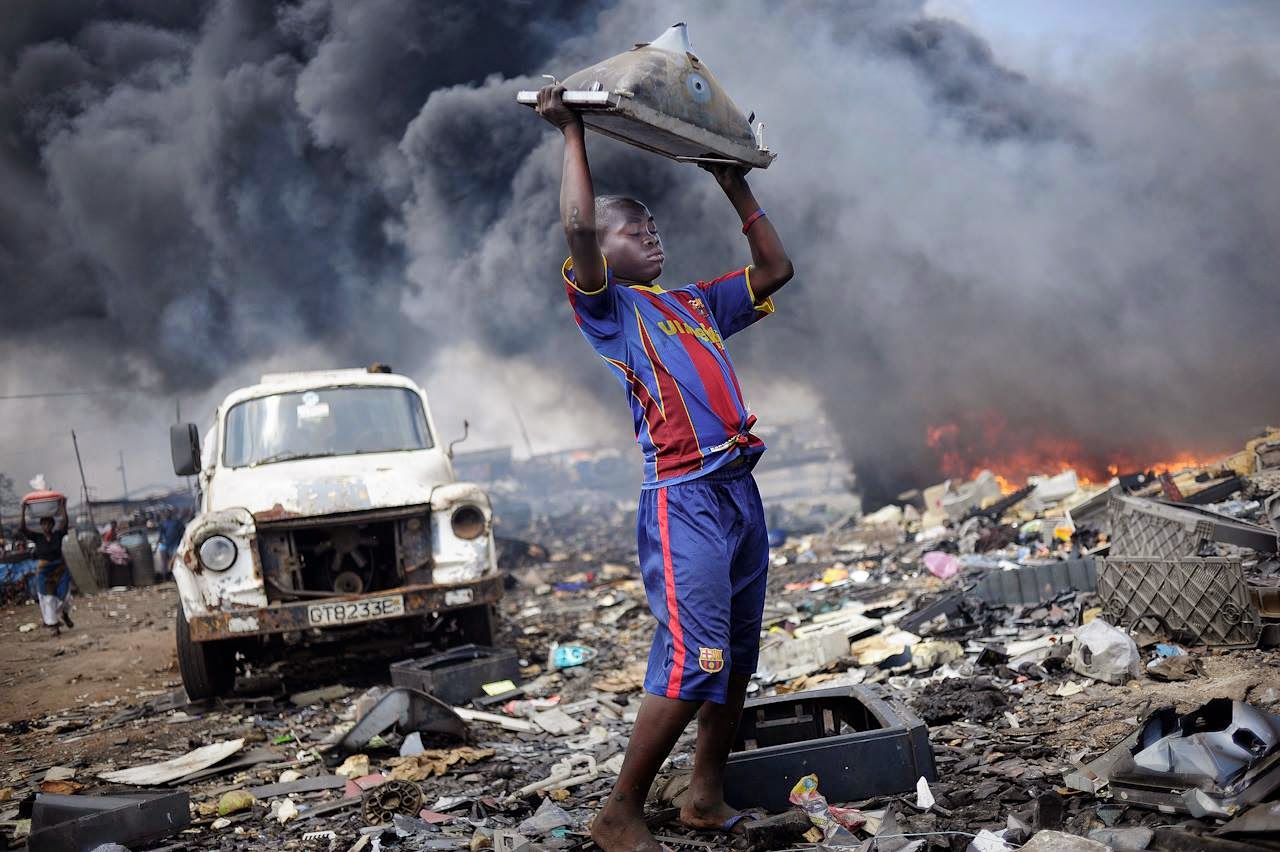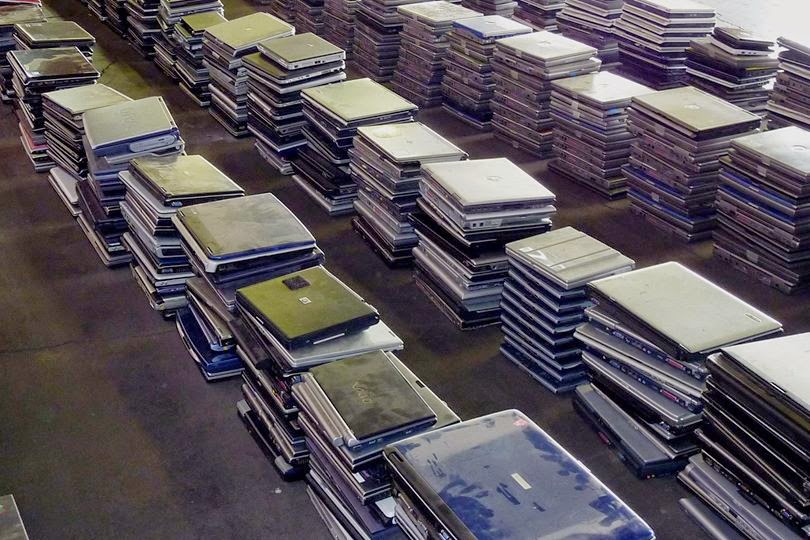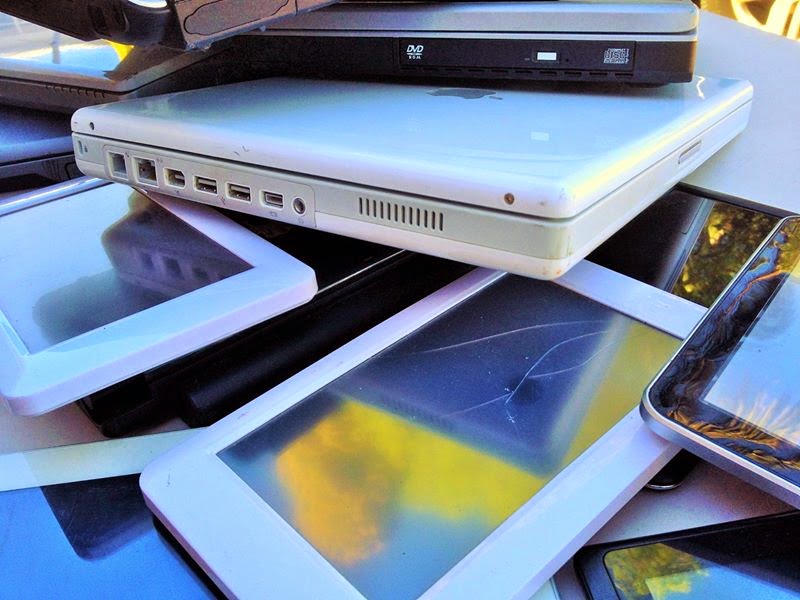10 Facts About E-Waste
Fact 1 :
80 to 85% of electronic products are discarded in landfills or incinerators, which can release certain toxics into the air.
80 to 85% of electronic products are discarded in landfills or incinerators, which can release certain toxics into the air.
Fact 2 :
E-waste represents 2% of Africa's trash in landfills, but it equals 70% of overall toxic waste. The extreme amount of lead in electronics alone causes damage in the central and peripheral nervous systems, the blood and the kidneys.
E-waste represents 2% of Africa's trash in landfills, but it equals 70% of overall toxic waste. The extreme amount of lead in electronics alone causes damage in the central and peripheral nervous systems, the blood and the kidneys.
Fact 3
20 to 50 million metric tons of e-waste are disposed worldwide every year.
20 to 50 million metric tons of e-waste are disposed worldwide every year.
Fact 4
Cell phones and other electronic items contain high amounts of precious metals like gold or silver. South Africans dump phones containing over 20 million Rand in gold/silver every year.
Cell phones and other electronic items contain high amounts of precious metals like gold or silver. South Africans dump phones containing over 20 million Rand in gold/silver every year.
Fact 5
Only 12.5% of e-waste is currently recycled.
Only 12.5% of e-waste is currently recycled.
Fact 6
For every 1 million cell phones that are recycled, 16000 kg's of copper, 350 kg's of silver, 34 kg's of gold, and 15 kg's of palladium can be recovered.
For every 1 million cell phones that are recycled, 16000 kg's of copper, 350 kg's of silver, 34 kg's of gold, and 15 kg's of palladium can be recovered.
Fact 7
Recycling 1 million laptops saves the energy equivalent to the electricity used by 3,657 South African homes in a year.
Recycling 1 million laptops saves the energy equivalent to the electricity used by 3,657 South African homes in a year.
Fact 8
A large number of what is labeled as "e-waste" is actually not waste at all, but rather whole electronic equipment or parts that are readily marketable for reuse or can be recycled for materials recovery.
A large number of what is labeled as "e-waste" is actually not waste at all, but rather whole electronic equipment or parts that are readily marketable for reuse or can be recycled for materials recovery.
Fact 9
It takes 244 kg's of fossil fuel, 21 kg's of chemicals, and 1486 liters of water to manufacture one computer and monitor.
It takes 244 kg's of fossil fuel, 21 kg's of chemicals, and 1486 liters of water to manufacture one computer and monitor.
Fact 10
Electronic items that are considered to be hazardous include, but are not limited to:Televisions and computer monitors that contain cathode ray tubes, LCD desktop monitors, LCD televisions, Plasma televisions, Portable DVD players with LCD screens.
Electronic items that are considered to be hazardous include, but are not limited to:Televisions and computer monitors that contain cathode ray tubes, LCD desktop monitors, LCD televisions, Plasma televisions, Portable DVD players with LCD screens.
www.mocycle.co.za
mocyclesa@gmail.com











